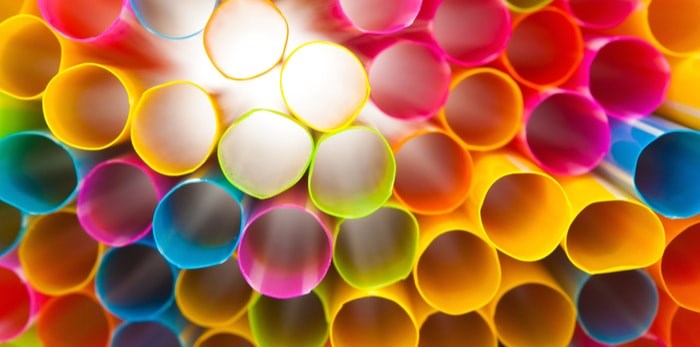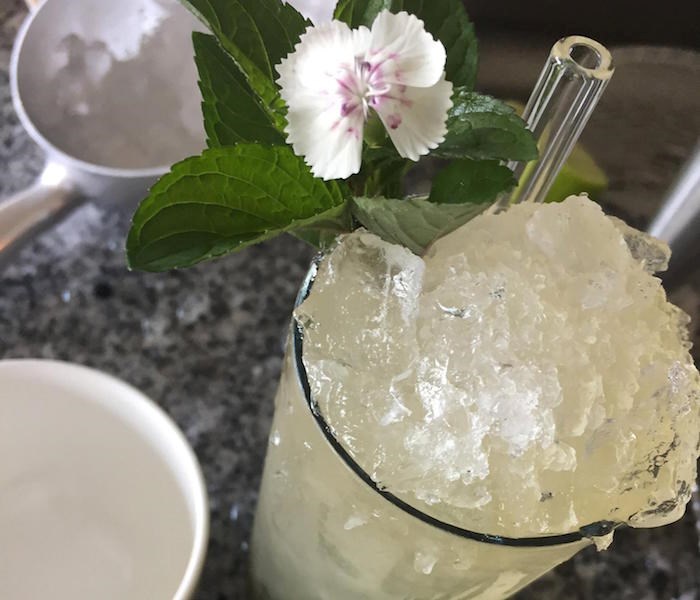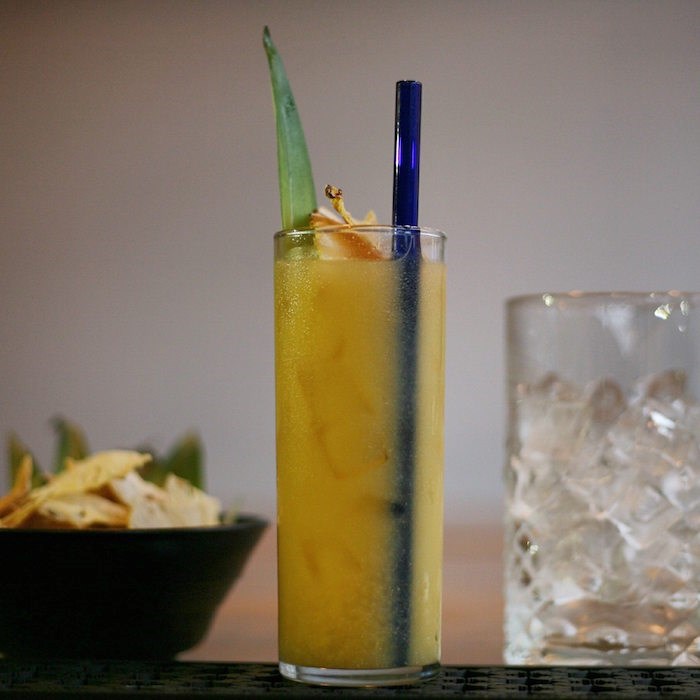Picture a plastic drinking straw, any colour, any size. Now picture a pile of them. Now imagine what 100,000 straws looks like.
Many bars and restaurants in Vancouver go through about 100,000 disposable, single-use plastic drinking straws in just one year. Those suckers don't break down in the landfill, and cost businesses heaps of money.
 Plastic straws/Shutterstock
Plastic straws/Shutterstock
Bartenders, restaurateurs, and other beverage biz folk have had it with the waste from plastic drinking straws, and are taking big strides by making big changes in how drinks are presented, and enjoyed. The solution: Reusable glass straws.
Brian Grant is the proprietor of Resurrection Spirits here in Vancouver, and he's also part of the team behind a new small business called The Last Straw.
Grant says he was disgusted with how many straws were being used once and tossed out in the cocktail industry.
"A straw touches your lips for a moment then goes in the garbage for a thousand years," points out Grant.
But straws aren't useless themselves, adds the bar- and businessman. They are "something humans have had in culture in a while," so Grant thought it would be a "shame to get rid of [straws] completely."
 Last Straw Co/Facebook
Last Straw Co/Facebook
Frustrated with the waste and the pollution, Grant looked into alternatives. Stainless steel reusable straws function well for sipping, but can alter the taste of the beverage. Glass straws work well, but no one in Vancouver was supplying them. So Grant and some peers decided to do the job themselves.
The Last Straw sources and supplies local food and beverage businesses with reusable glass straws. First to sign on was Main Street's The Cascade Room, where fellow cocktail industry pro and General Manager Justin Taylor shares Grant's frustration.
Taylor says The Cascade Room went plastic straw-free at the start of October 2017. The change was something Taylor had been "toying with for a long period of time," dating back to his time at previous gigs in high-profile Vancouver spots like Boulevard.
For Taylor, The Last Straw offers a solution that is economical, environmentally-friendly, and a real aesthetic game-changer.
 A cocktail from The Cascade Room served with a glass straw (The Cascade Room/Facebook)
A cocktail from The Cascade Room served with a glass straw (The Cascade Room/Facebook)
At Cascade, Taylor says the policy shift means they don't serve all drinks with straws, but will provide a glass one upon request--theirs are a custom blue colour. Since "no one puts a straw in wine or beer" anyhow, surmised Taylor, they don't need to be a fixture in every cocktail, either.
Taylor notes that servers will explain to the customer that the straw is glass (just so they are a bit more careful), and that they have enough in stock to have in use and in reserve at the bar. The glass straws are washed and sanitized like all the other glassware.
The Cascade Room is now a 100% plastic-free house, and Taylor is finding that the move to the glass straws is paying off. He says of his initial order of 200 there are about 140 glass straws remaining, having a few lost to breakage or theft. Customers can buy their own straw for $5 apiece, and that revenue is going towards the Cascade's eventual follow-up restock order.
The reaction, attests Taylor, has been positive all around.
"No one is upset about it, it's saving the company money, and we are making a small impact on the environment."
Grant and Taylor are both sharing their enthusiasm for the glass reusable straws with their peers in the industry. The goal is to get larger chain restaurants on board, to really scale up the practice in the industry, and to get more consumers in the habit of not getting a disposable plastic straw in every cup.
The Last Straw is in talks with one major chain, and hopefully more will come on board, and the movement can grow.
"I'm hoping that this can become a global trend of straw reduction," adds Taylor. "There's absolutely no need to have [plastic straws] whatsoever."


